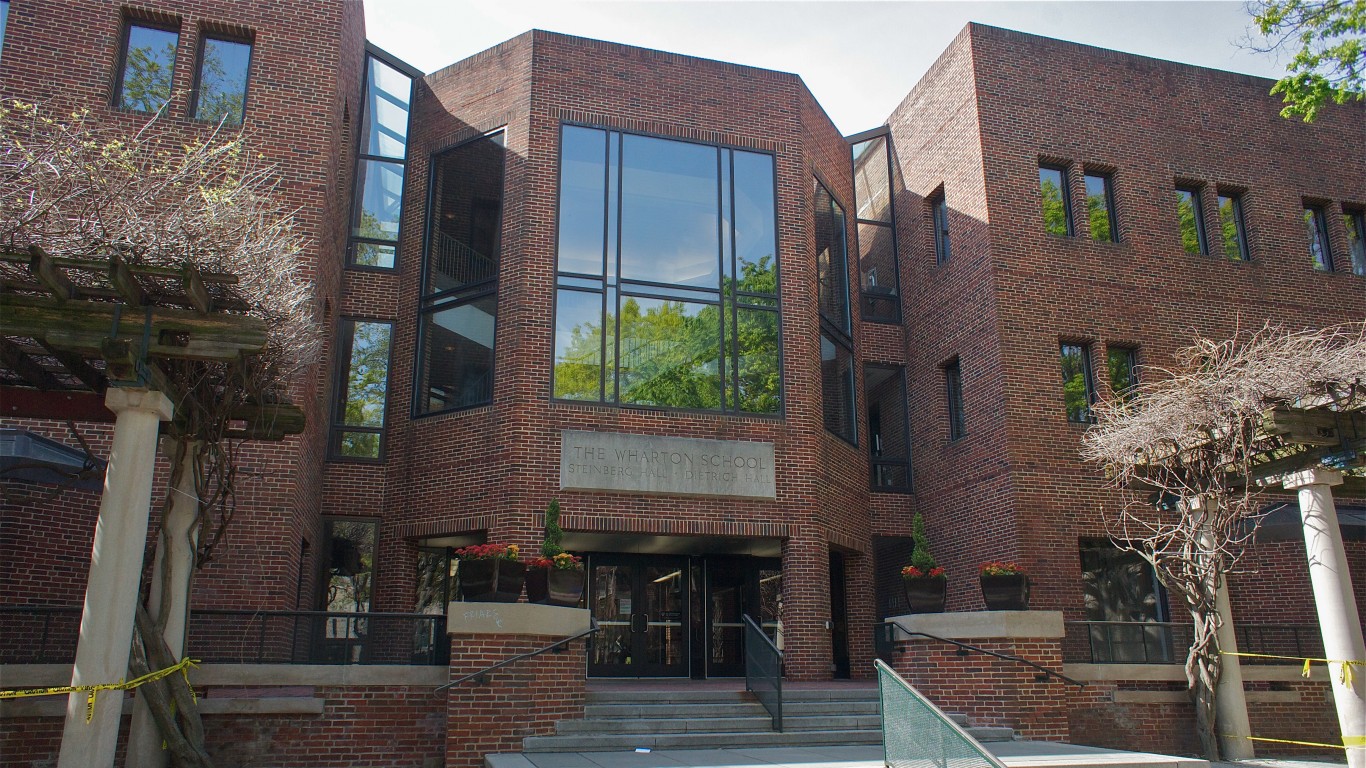
The top-ranked graduate business school in the country, according to U.S. News & World Report, is the University of Pennsylvania’s Wharton School. For students entering the Master of Business Administration (MBA) program this fall, tuition and fees will ring up a tab of $155,528 for the two-year program, not including housing, food, books and other incidental costs.
Provided that a student can get accepted at Wharton, is the cost of that two-year MBA worth it? In an October 2018 interview with Poets&Quants.com, Carnegie Mellon’s Robert Dammon, dean of the university’s Tepper School of Business, had an answer: “I look at things not in terms of how much they cost but in terms of what am I getting for what I am spending. … Don’t look at the sticker price. When you go in to buy a car, you don’t pay the sticker price. You pay something less than that.” Tepper’s tuition cost for the two-year program beginning this fall is $132,000.
According to Dammon, Tepper students found jobs with a starting salary of $125,000, in many cases doubling their incomes after getting the degree. The payback period, he said, was slightly less than four years. Finance, after all, is among the highest paying college majors in America.
Yet not everyone can qualify for admission to Wharton or Tepper (Tepper is ranked #17 by U.S. News). Wharton is among the hardest colleges to get into. Another way for people to make themselves more valuable (which is what getting additional specialized education is all about) is to sign up for a skill-sharpening course on a specific management area where they might need a tune-up. According to a new survey from professional education program Training the Street, only 55% of students who earned MBAs this year from the country’s top 25 business schools received job offers with salaries of $100,000 or more, down from 81% in who received such offers in 2018. The survey results were reported Tuesday morning in the New York Post.
At Training the Street, a core course in financial modeling and corporate valuation costs $1,250 a day (or $1,000 for early registrants) for the five-day course. A two-day course called Applied Excel is designed to improve “Excel skills and deficiencies” for $1,300 a day. The company makes no reference to the financial rewards to its students, at least none that we could easily find. Though the training classes are not exactly cheap, they may meet a specific skill need in a more cost-effective and less time-consuming way than a two-year degree program.
Getting an MBA and sharpening up your Excel skills are in no way equivalent. Still, the number of test scores sent to U.S. schools offering full-time, two-year MBAs has dropped by nearly a third, from nearly 237,000 in 2015 to about 163,000 in 2018. Some of that is the result of more full-time, accredited MBA programs closing their doors and some is due to an already heavily indebted horde of millennials graduating from college who are unwilling to pile up even more debt in pursuit of an MBA.
At the University of Illinois, according to a report in The Wall Street Journal, the Gies College of Business is enrolling its last full-time, on-campus class this fall. The school’s online MBA program currently enrolls about 2,000 students, each of whom pays less than $22,000 for an MBA, compared to a price tag of $58,000 for a full-time student.
If there’s a lesson to be teased out of all this, it’s that the supply of post-baccalaureate education and training has to change to meet the demands imposed by both the financial constraints of the day and the lifestyles of its largest customer base. As an online University of Illinois MBA student living in Dubai said, an online degree “is the future.”
One last point: only about a third of last year’s best-performing CEOs had an MBA, according to a listing published in the Harvard Business Review. Only one of the top 10 had the degree. Microsoft’s Satya Nadella has an MBA, but Amazon’s founder and CEO Jeff Bezos does not.
Even though many universities are rethinking their MBA programs, there remain a number of full-time MBA programs that are still affordable.
It’s Your Money, Your Future—Own It (sponsor)
Retirement can be daunting, but it doesn’t need to be.
Imagine having an expert in your corner to help you with your financial goals. Someone to help you determine if you’re ahead, behind, or right on track. With SmartAsset, that’s not just a dream—it’s reality. This free tool connects you with pre-screened financial advisors who work in your best interests. It’s quick, it’s easy, so take the leap today and start planning smarter!
Don’t waste another minute; get started right here and help your retirement dreams become a retirement reality.
Thank you for reading! Have some feedback for us?
Contact the 24/7 Wall St. editorial team.


